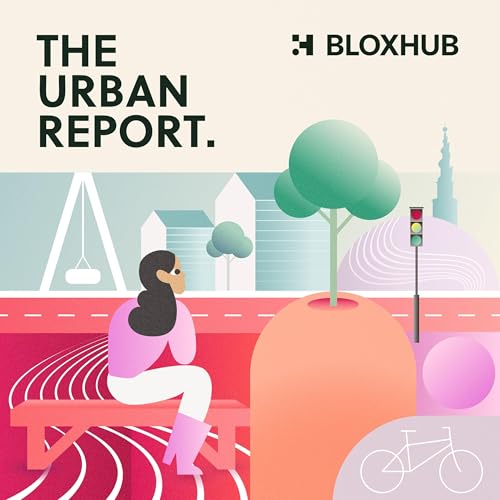
The Urban Report: From FORESIGHT Climate & Energy, The Urban Report is a podcast that takes a close look at how cities around the world are transitioning to net-zero.
Failed to add items
Sorry, we are unable to add the item because your shopping cart is already at capacity.
Add to basket failed.
Please try again later
Add to Wish List failed.
Please try again later
Remove from Wish List failed.
Please try again later
Follow podcast failed
Unfollow podcast failed
-
Narrated by:
About this listen
From FORESIGHT Climate & Energy, The Urban Report is a podcast that takes a close look at how cities around the world are transitioning to net-zero. Every two weeks, host Sean Carroll has in-depth conversations with some of the most interesting minds working on sustainability in the built environment today. From making local mobility greener to improving energy efficiency in buildings, there’s never been a better time to explore the climate transition from an urban perspective.
Hosted on Acast. See acast.com/privacy for more information.
FORESIGHT Media Group
Episodes
-
 Oct 6 202553 mins
Oct 6 202553 minsFailed to add items
Sorry, we are unable to add the item because your shopping cart is already at capacity.Add to basket failed.
Please try again laterAdd to Wish List failed.
Please try again laterRemove from Wish List failed.
Please try again laterFollow podcast failed
Unfollow podcast failed
-
 Oct 3 202542 mins
Oct 3 202542 minsFailed to add items
Sorry, we are unable to add the item because your shopping cart is already at capacity.Add to basket failed.
Please try again laterAdd to Wish List failed.
Please try again laterRemove from Wish List failed.
Please try again laterFollow podcast failed
Unfollow podcast failed
-
 Oct 1 202554 mins
Oct 1 202554 minsFailed to add items
Sorry, we are unable to add the item because your shopping cart is already at capacity.Add to basket failed.
Please try again laterAdd to Wish List failed.
Please try again laterRemove from Wish List failed.
Please try again laterFollow podcast failed
Unfollow podcast failed
No reviews yet
In the spirit of reconciliation, Audible acknowledges the Traditional Custodians of country throughout Australia and their connections to land, sea and community. We pay our respect to their elders past and present and extend that respect to all Aboriginal and Torres Strait Islander peoples today.


